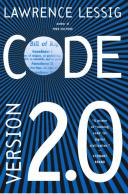Книга: Code 2.0
Regulations of Speech: Spam and Porn
Regulations of Speech: Spam and Porn
For all our talk about loving free speech, most of us, deep down, wouldn’t mind a bit of healthy speech regulation, at least in some contexts. Or at least, more of us would be eager for speech regulation today than would have been in 1996. This change is because of two categories of speech that have become the bane of existence to many on the Net: spam and porn.
By “spam” I mean unsolicited commercial e-mail sent in bulk. “Unsolicited”, in the sense that there’s no relationship between the sender and recipient; “commercial” in a sense that excludes political e-mail; “e-mail” in the sense not restricted to e-mail, but that includes every medium of interaction in cyberspace (including blogs); and “bulk” meaning many (you pick the number) missives sent at once.
By “porn”, I mean not obscenity and not child porn, but what the United States Supreme Court calls sexually explicit speech that is “harmful to minors[33]”. This is the category of legally permitted erotic speech — for adults, at least, not for kids. Obscenity and child porn are permitted to no one.
These two types of speech — porn and spam — are very different, but they are similar in the structure of regulation that each demands. Neither kind of speech should be banned by regulation: There are some who are happy to receive spam; there are some who are constitutionally entitled to access porn. But for both kinds of speech, there is a class of individuals who would like the power to block access to each: most of us with respect to spam; parents with respect to porn. This is a desire for a kind of “speech regulation.” The question is how, or whether, the law can support it.
I’m all for this form of speech regulation, properly architected. “But how”, anti-regulation sorts might ask, “can you so easily embrace the idea of regulation? Have you forgotten the important values of free speech? ”
But if the lovers of this form of speech regulation have been reading carefully, they have a quick answer to this charge of censorship. It is clear, upon reflection, that in the sense of Chapter 7, spam and porn have always been regulated in real space. The only question for cyberspace is whether the same effect of those real space regulations can be achieved in cyberspace.
- Speech Recognition
- Разработка приложений баз данных InterBase на Borland Delphi
- Open Source Insight and Discussion
- Introduction to Microprocessors and Microcontrollers
- Chapter 6. Traversing of tables and chains
- Chapter 8. Saving and restoring large rule-sets
- Chapter 11. Iptables targets and jumps
- Chapter 5 Installing and Configuring VirtualCenter 2.0
- Chapter 16. Commercial products based on Linux, iptables and netfilter
- Appendix A. Detailed explanations of special commands
- Appendix B. Common problems and questions
- Appendix E. Other resources and links




